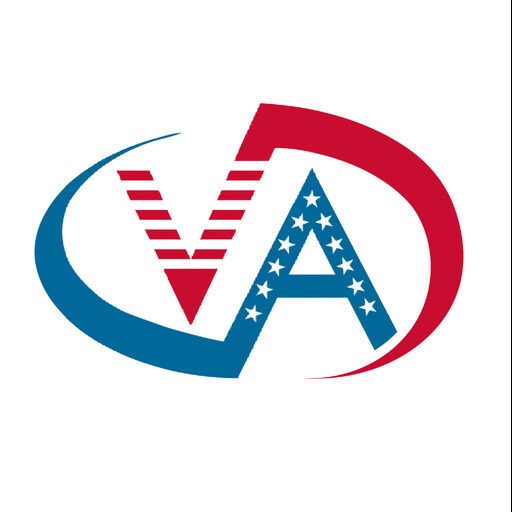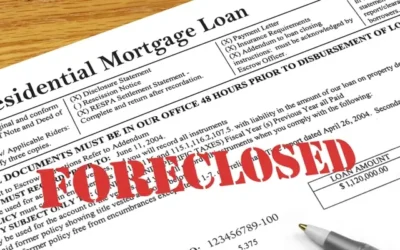
Homeownership comes with financial responsibilities that can sometimes become overwhelming, especially for Veterans facing unexpected hardships.
If you’re unable to keep up with your VA-backed mortgage and need to sell your home for less than the amount owed, the VA Compromise Sale Program might provide a solution.
This program helps eligible Veterans avoid foreclosure while satisfying their mortgage obligations.
Here’s everything you need to know about how it works, who qualifies, and how to get started.
Speak to a VA Lender in Our Network to Get Pre-Approved Today
What Is the VA Compromise Sale Program?
The VA Compromise Sale Program allows homeowners with VA-backed loans to sell their property for less than the total amount owed on the mortgage. The Department of Veterans Affairs helps cover the difference between the sale price and the outstanding loan balance, protecting the lender while offering relief to the homeowner.
“The VA Compromise Sale is designed to protect Veterans from the long-term consequences of foreclosure while providing a practical way out of a tough financial situation,” explains Mark Hill, a VA mortgage consultant.
How Does It Work?
Here’s a step-by-step overview of how the VA Compromise Sale Program operates:
- Eligibility Assessment: The homeowner must demonstrate financial hardship, such as job loss, medical expenses, or other unforeseen events.
- Property Valuation: A VA-approved appraisal determines the property’s fair market value.
- Lender Approval: The lender must agree to the sale and accept the reduced payoff amount.
- VA Review: The VA evaluates the situation and provides approval for the compromise sale.
- Sale Completion: The property is sold, and the VA pays the lender the difference between the sale price and the outstanding loan balance.
Benefits of the VA Compromise Sale Program
The program offers several advantages for struggling homeowners:
- Avoid Foreclosure: Selling your home through a compromise sale prevents the damaging financial and emotional effects of foreclosure.
- Credit Protection: While a compromise sale may impact your credit score, it’s typically less severe than foreclosure.
- Debt Forgiveness: You won’t be held responsible for the remaining loan balance after the sale.
- Potential Eligibility for Future VA Loans: Depending on the circumstances, you may still qualify for another VA loan after completing a compromise sale.
“This program is a lifeline for Veterans who need to start fresh while minimizing the financial fallout of selling a home for less than what they owe,” says Sarah Thompson, a real estate professional experienced in VA transactions.
Who Qualifies
Not all homeowners with VA-backed loans will qualify. Eligibility requirements include:
- Financial Hardship: You must demonstrate an inability to make your mortgage payments due to unexpected circumstances.
- VA-Backed Loan: The loan must be a VA-guaranteed mortgage.
- Cooperative Lender: Your lender must agree to the compromise sale and accept the reduced payoff.
- No Other Options: A compromise sale is typically considered only if you’ve exhausted all other options, such as loan modifications or repayment plans.
How to Apply for the VA Compromise Sale Program
If you’re considering the VA Compromise Sale Program to avoid foreclosure, the application process involves several steps. Here’s how to get started:
- Contact Your Lender: Notify your mortgage servicer about your financial difficulties and express your intent to explore the VA Compromise Sale Program.
- Demonstrate Financial Hardship: Gather documentation such as pay stubs, medical bills, or a letter explaining your inability to make mortgage payments.
- Request an Appraisal: Your lender will coordinate a VA-approved appraisal to determine the fair market value of your property.
- List Your Property for Sale: Work with a real estate agent to list your home at the appraised value, ensuring it meets VA requirements.
- Submit Offers to the VA: Once you receive a buyer’s offer, your lender and the VA will review and approve the compromise sale.
- Complete the Sale: After approval, the property is sold, and the VA covers the shortfall between the sale price and your loan balance.
- Work with Professionals: Consult a VA-savvy real estate agent or legal advisor to guide you through the process and ensure all requirements are met.
By following these steps and providing the necessary documentation, you can successfully apply for the VA Compromise Sale Program and avoid foreclosure.
Key Factors Considered by the VA
The VA evaluates several factors when determining whether to approve a compromise sale:
| Factor | Considerations |
|---|---|
| Property Condition | Does the home meet minimum standards for sale? |
| Market Value | Is the proposed sale price reasonable for the area? |
| Financial Hardship | Have you provided sufficient evidence of hardship? |
| Lender Cooperation | Has the lender agreed to accept the reduced payoff? |
Steps to Complete a VA Compromise Sale
If you’re considering a VA compromise sale, here’s what you need to do:
- Contact Your Lender: Notify your mortgage servicer about your financial difficulties and request information about the compromise sale process.
- Provide Documentation: Submit proof of your financial hardship, such as pay stubs, medical bills, or a letter explaining your situation.
- Get an Appraisal: A VA-approved appraiser will assess the property’s fair market value.
- List Your Home: Work with a real estate agent to list the property for sale at the appraised value.
- Submit the Offer: When a buyer makes an offer, submit it to your lender and the VA for approval.
- Close the Sale: If approved, the sale proceeds are used to pay off part of the loan, and the VA covers the remaining balance.
VA Compromise Sale vs. Short Sale
A VA compromise sale is often compared to a traditional short sale. Here’s how they differ:
| Aspect | VA Compromise Sale | Short Sale |
|---|---|---|
| Loan Type | Exclusive to VA-backed loans | Applies to conventional or FHA loans |
| VA Involvement | VA covers the shortfall for eligible loans | Lender absorbs the loss without VA support |
| Credit Impact | Less damaging than foreclosure | Can significantly affect credit score |
Common Challenges and How to Overcome Them
While the VA Compromise Sale Program offers significant benefits, homeowners may face challenges, such as:
- Lender Resistance: Some lenders may hesitate to accept a reduced payoff. Persistent communication and VA assistance can help.
- Appraisal Issues: If the appraised value is too low, it may limit buyer interest. Working with an experienced agent can help set realistic expectations.
- Time Constraints: The process can take several months. Start early to avoid foreclosure deadlines.
Real-Life Example: How a VA Compromise Sale Helped a Veteran
John, a retired Army Veteran, found himself struggling to make mortgage payments after unexpected medical expenses. With $20,000 in negative equity, he contacted his lender and initiated the VA Compromise Sale process.
After providing documentation of his financial hardship, John worked with a real estate agent to list his home. Within three months, he sold the property for $250,000—$30,000 less than his loan balance. The VA covered the shortfall, allowing John to move forward without foreclosure.
Frequently Asked Questions
What is a VA compromise sale?
It’s a program that allows homeowners with VA-backed loans to sell their home for less than the amount owed, with the VA covering the shortfall.
How does a VA compromise sale affect my credit?
While it may lower your credit score, the impact is less severe than a foreclosure, making it a better option for maintaining future financial stability.
Can I qualify for another VA loan after a compromise sale?
Yes, but your remaining entitlement may be affected. In some cases, you may need to repay the VA for the shortfall before regaining full entitlement.
How long does the process take?
The timeline varies but typically takes three to six months. Starting early can help avoid foreclosure deadlines.
What documentation is needed?
You’ll need to provide proof of financial hardship, such as pay stubs, medical bills, or a letter explaining your situation.
Does the lender have to approve the sale?
Yes, the lender must agree to accept a reduced payoff and cooperate with the VA during the process.
Are there any costs to the homeowner?
While the VA covers the shortfall, homeowners may still be responsible for closing costs or agent commissions, depending on the agreement.
What happens if my home doesn’t sell?
If the property doesn’t sell, you may need to explore other options, such as a deed in lieu of foreclosure or a loan modification.
Does the property condition matter?
Yes, the home must meet minimum standards for sale, and the appraised value should reflect its condition.

The VA Loan Network Editorial Team is comprised of dedicated mortgage specialists and financial writers committed to providing veterans and service members with accurate, up-to-date information on VA loan benefits, eligibility, and the home-buying process.








